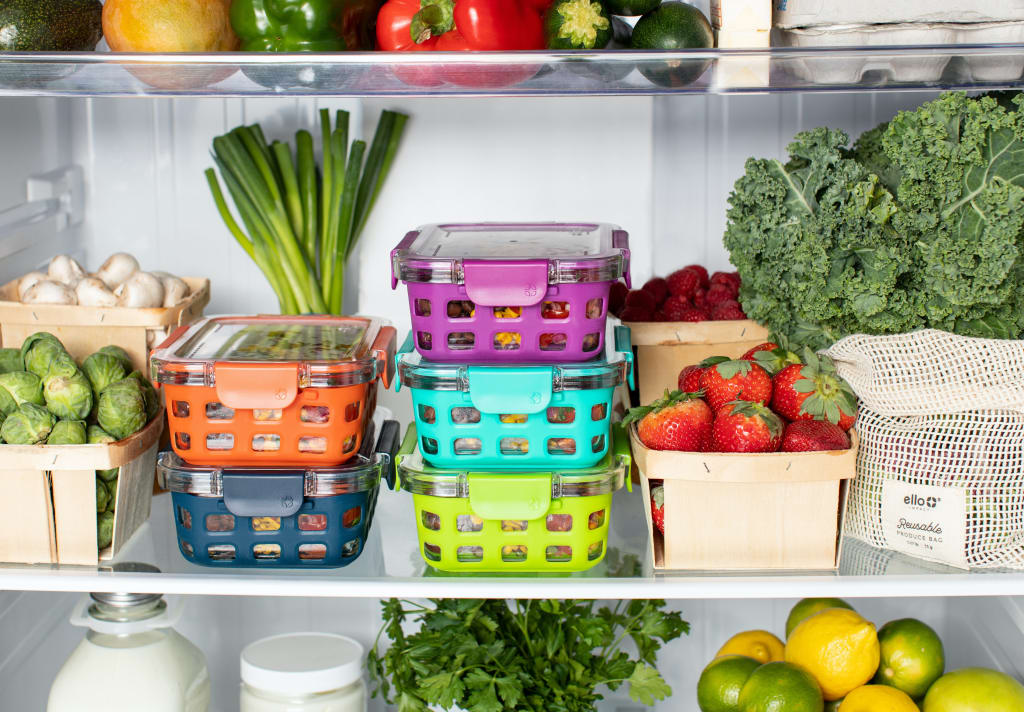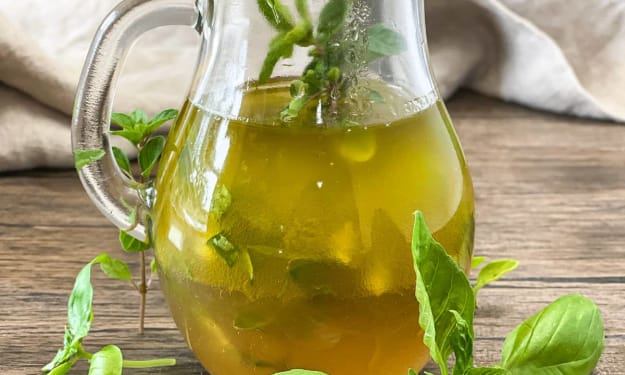How Long Are Cooked Vegetables Good For In The Fridge
The Ultimate Guide to Keeping Cooked Vegetables Fresh in the Fridge

In this piece, we’ll investigate how long cooked vegetables keep in the fridge and address some frequently asked questions about their storage and safety.
By understanding how long cooked vegetables last in the fridge, you can ensure that your meals remain nutritious while reducing waste and saving money on groceries.
One common question that many of us are asked is how long cooked vegetables can be kept in the refrigerator without going bad.
Both the food’s safety and its nutritional value are at stake in this inquiry.
Healthy nutrients like vitamins, minerals, fiber, and antioxidants can be found in abundance in cooked vegetables, making them a staple in many households.
However, when stored improperly or for too long, these nutrient-dense foods can lose some of their benefits and become unsafe for consumption.
Understanding The Lifespan Of Cooked Vegetables
It’s ironic that some of the healthiest foods we consume are also among the most perishable.
Perishable foods like cooked vegetables should always be stored at temperatures below 40°F (4°C) to prevent bacterial growth.
While cooking may kill off any existing bacteria, new ones can still develop if left at room temperature or above for too long.
Proper storage is key to extending the shelf life of cooked vegetables in your fridge.
Generally speaking, cooked vegetables will remain safe to eat for about 3-4 days after being cooked if kept within this temperature range.
However, there are certain factors that can affect their lifespan even further, which we will explore next.
Factors That Affect Shelf Life

Understanding the life span of cooked vegetables is crucial to ensuring that you consume safe and healthy food.
It’s worth noting that cooked vegetables don’t keep as long as raw ones do in the fridge. The average lifespan for cooked vegetables stored in the fridge ranges from three to five days, depending on factors such as temperature range, storage method, and type of vegetable.
Cooked vegetables should be stored within two hours after cooking at temperatures below 40°F or above 140°F since this is the danger zone for bacteria growth. Proper storage can extend the lifespan of your cooked vegetables and prevent spoilage bacteria and harmful bacteria like salmonella, listeria, and E. coli from growing.
Spoilage bacteria cause discoloration, off-odors, and sliminess, while harmful bacteria lead to foodborne illnesses that may result in diarrhea, vomiting, or nausea. Therefore, it’s essential to always check for any signs of spoilage before consuming leftover cooked vegetables.
- Best practices for storing cooked vegetables involve several steps that can help prolong their freshness and maintain their nutritional value. These include:
- proper packaging using an airtight container or plastic wrap with minimum air exposure;
- labeling with date and content information to avoid confusion; placing it immediately into the refrigerator;
- avoiding overloading your fridge by creating enough space around your containers;
- reheating leftovers thoroughly at 165°F before consumption; among others.
Following these guidelines for best practices when storing your leftover cooked veggies will ensure you can enjoy them safely without compromising on taste or nutrition.
Best Practices For Storing Cooked Vegetables
One of the most important aspects to consider when it comes to cooked vegetables is food safety.
Cooked vegetables are perishable foods and can only last for 3-7 DAYS in the fridge before they start to spoil.
This means that proper storage techniques are essential to ensure their freshness.
To store cooked vegetables properly, follow these best practices:
- Allow them to cool down completely before placing them in an airtight container
- Label the container with the date it was made so you know when to consume it by
- Store them on a shelf rather than in the door of your fridge where temperatures fluctuate more frequently
- Avoid storing cooked vegetables next to raw meats or other foods that could contaminate them
By following these simple steps above, you can keep your cooked vegetables fresh and safe to eat for up to 7 days.
In the subsequent section, we will explore common types of cooked vegetables and their lifespan.
Common Types Of Cooked Vegetables And Their Lifespan
Vegetables, especially when cooked, are an excellent source of fibre, vitamins, and minerals. However, it is important to keep in mind their lifespan when storing them in the fridge.
Some types of cooked vegetables last longer than others. Vegetables, especially when cooked, are an excellent source of fibre, vitamins, and minerals..
On the other hand, leftover vegetables that have been reheated may not last as long because of increased bacterial growth from repeated cooking cycles.
Knowing how long cooked vegetables keep in the fridge is useful information for encouraging healthy eating and reducing food waste. To avoid getting sick from spoiled food, however, it is also important to know the signs that your cooked vegetables have gone bad.
Signs That Your Cooked Vegetables Have Gone Bad
It is important to be aware of the signs that your cooked vegetables have gone bad. One key idiom to keep in mind when assessing the freshness of your food is ‘when in doubt, throw it out.’

When cooked vegetables, or any cooked food for that matter, are left in the danger zone between 40°F and 140°F (4°C – 60°C), pathogenic bacteria can multiply rapidly, leading to potential illness if consumed, and can affect your immune systems. Therefore, the risk of food poisoning becomes very great. Signs that your cooked veggies have gone bad include a slimy texture or an unpleasant odor.
Additionally, any discoloration or mold on the surface indicates that harmful microorganisms may be present.
To ensure safety, always reheat cooked vegetables thoroughly to an internal temperature of at least 165°F (74°C). By being mindful of these indicators and, the good news is, taking proper storage precautions, you can reduce food waste while keeping yourself and those around you healthy.
Transition: Now that we’ve discussed how long cooked vegetables are good for in the fridge and what signs indicate spoilage, let’s explore some tips for maximizing their freshness and extending their shelf life.
Tips For Maximizing The Freshness Of Cooked Vegetables

After understanding the signs that your cooked vegetables have gone bad, it’s essential to know how long they can stay fresh in the fridge.
To maximize the freshness of cooked vegetables for an extended period, store them immediately after cooling down in an airtight container. Ensure that there is no excess air inside before sealing it tightly; this will help prevent bacterial growth that causes spoilage.
Additionally, place the containers towards the back of the fridge, where temperatures are more consistent than near the door, which experiences fluctuations whenever opened. Following these guidelines will help you waste less food while still eating healthfully.
Moving forward, let’s explore frequently asked questions about storing cooked vegetables and learn more about best practices for keeping them fresh and safe to consume.
Storing Cooked Vegetables
The general rule of thumb is that cooked vegetables can be stored in the refrigerator for up to four days.. However, this timeframe may vary depending on the type of vegetable and how it was stored.
Cucumbers and tomatoes, which contain a lot of water, spoil more quickly than carrots and bell peppers, which contain much less. Furthermore, lettuce and spinach lose much of their nutritional value after two days.
To ensure maximum freshness and minimize bacterial growth, leftover food, including cooked vegetables, should always be refrigerated promptly after being prepared. The best way to store them properly is by placing them in shallow containers that are airtight. Wrap them tightly with plastic wrap before putting them in the fridge. This will help prevent moisture from escaping, which can cause the vegetables to dry out and lose their flavor.
For best results, aim to consume your cooked vegetables within four days and discard any leftovers beyond that point.
To prolong the shelf life of cooked vegetables:
- Store immediately after cooking
- Use an airtight container or wrap tightly with plastic wrap
- Keep in the coldest part of the refrigerator (usually between 1°C-4°C)
- Leafy vegetables like spinach or lettuce should only be kept for up to two days.
- Check for signs of spoilage such as sliminess, discoloration or off smell prior consumption , and discard immediately if any of these signs are present.
Frequently Asked Questions
1. Can Cooked Vegetables Be Frozen To Extend Their Shelf Life?
Cooking vegetables can make preparing healthy meals in advance simpler. However, leftovers frequently go bad in the fridge because people forget about them.
Cooked vegetables can be stored in the freezer for up to six months without losing quality or taste.
It’s important to note that some vegetables, such as lettuce, cucumbers, or tomatoes, may not freeze well due to changes in texture and taste after thawing. But most veggies like broccoli, carrots, cauliflower, and green beans work great!
2. Is It Safe To Eat Cooked Vegetables That Have Been Left Out Overnight?
Vegetables that have been cooked and then left out at room temperature for an extended period of time should not be consumed. When food is not stored properly, bacteria and other pathogens have a chance to multiply and spread, potentially making people sick.
As such, it is important to refrigerate cooked vegetables within two hours after cooking or serving them. However, if the vegetable has been left at room temperature for more than two hours, it should be discarded to prevent any potential health risks.
To ensure the safety and freshness of cooked vegetables, they should be stored in an airtight container and consumed within three to four days from the date of preparation.
3. How Often Should I Check My Cooked Vegetables For Signs Of Spoilage?
It is important to emphasize the significance of food safety measures.
Vegetables should be refrigerated as soon as possible after cooking in an airtight container.
Vegetables that have been cooked should not be left out for more than two hours at room temperature.
It’s important to keep an eye out for mold and discoloration in cooked vegetables that have been stored for a long time.
In addition, always follow proper hygiene practices when handling and preparing food to prevent cross-contamination and ensure optimal freshness and taste.
By staying proactive with these simple measures, you can enjoy delicious and nutritious meals while minimizing the risk of foodborne illnesses.
4. Can I Store Different Types Of Cooked Vegetables Together In The Same Container?
Storing different types of cooked vegetables in the same container can be a convenient way to save space and reduce waste. Cross-contamination between different foods is a concern, though, so keep that in mind.
Different types of vegetables may have varying levels of moisture content, acidity, and bacterial loads that can affect their shelf life and safety. As a nutritionist or dietitian, it is recommended to store each type of vegetable separately in labeled containers with tight-fitting lids.
This approach not only helps prevent contamination but also allows for easier meal planning and portion control. Additionally, storing cooked vegetables at temperatures below 40°F (4°C) can help extend their freshness and quality for up to four days.
5. Is It Necessary To Reheat Cooked Vegetables Before Consuming Them?
It is important to consider the safety and nutritional value of cooked vegetables before consumption.
While reheating cooked vegetables may enhance their flavor and texture, it may not always be necessary from a food safety standpoint.
However, consuming cold cooked vegetables can lead to digestive discomfort due to their high fiber content.
Additionally, some vitamins and minerals are more easily absorbed by the body when consumed warm or hot.
Therefore, individuals should consider reheating their cooked vegetables for optimal digestion and nutrient absorption but must ensure that they have been stored safely in the fridge prior to use
Conclusion
Knowing how long cooked vegetables will keep in the fridge is useful information, given the health benefits of including them in one’s diet. The nutritional value of cooked vegetables is preserved, and their storage life is greatly increased when they are frozen.
However, leaving cooked vegetables out overnight increases the risk of bacterial growth, leading to food poisoning. It’s crucial to store different types of cooked vegetables separately in containers because some vegetables have stronger flavors that could affect others’ tastes.
Additionally, reheating leftovers before consumption ensures that bacteria do not survive or multiply, making them safe for consumption. I highly recommend incorporating sufficient servings of cooked vegetables into your daily meals and checking for spoilage signs regularly.
Remember to eat healthily and stay safe!
Thank you for reading. If you enjoyed my story, please comment and consider subscribing, and please support me by buying me a coffee:
https://ko-fi.com/matthewbolton
About the Creator
Matthew Bolton
I love to provide inspirational content that lifts people's spirits, wherever that inspiration takes me!
I have a passion for cooking. I love health and fitness & like to give valuable insights on what inspires me.






Comments
There are no comments for this story
Be the first to respond and start the conversation.